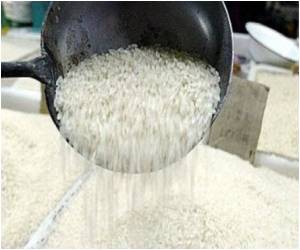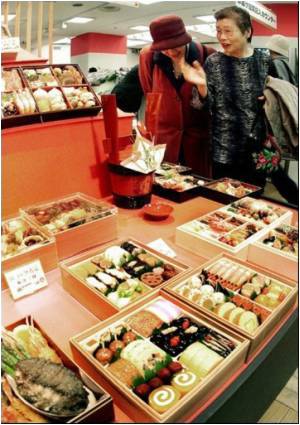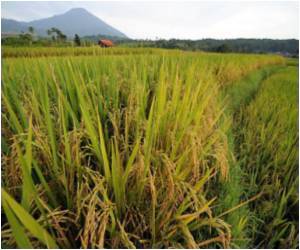Up to 10 percent of rice grown in China is contaminated with harmful heavy metals but little has been done to highlight the possible public health risks, a report said.

"During China's fast-paced industrialisation, activities such as mining have sprung up everywhere, releasing into the environment chemical elements like cadmium, arsenic, mercury and other harmful heavy metals," the report said.
"These harmful heavy metals have spread through the air and water, polluting a rather large area of China's land... a complete chain of food contamination has existed for years."
The report cited academic studies since 2007 focusing on several rural villages in southern China near mines and industrial areas where health problems such as bone diseases have emerged, mostly among the elderly.
Pan Genxing, a scientist who carried out some of the key research cited in the report, said the percentage of tainted rice was even higher in some specific localities.
"In areas with acidic soil that are known to be badly polluted, we have found that up to 60 percent of the rice samples gathered there surpass cadmium standards," Pan, a scientist with Nanjing Agricultural University, told AFP.
Advertisement
Most at risk from high cadmium levels were subsistence farmers in polluted areas who mainly live on the rice they grow, Pan said.
Advertisement
The magazine report said, however, that no major investigations into the possible public health impact have been carried out.
Rice, which is widely grown in south China, is the nation's staple grain with about 200 million tonnes produced annually, the report said.
Food safety is a major problem in China, where scares regularly emerge including recent scandals involving contaminated red wine, bleached mushrooms, fake tofu and recycled cooking oil.
In 2008, at least six children died and around 300,000 fell sick after consuming powdered milk laced with the industrial chemical melamine, which was added to make products appear higher in protein.
Rapid industrialisation over the past 30 years helped China become the world's second-largest economy last year.
But the focus on growth, combined with lax environmental protection, has saddled the country with some of the world's worst water and air pollution.
Source-AFP








